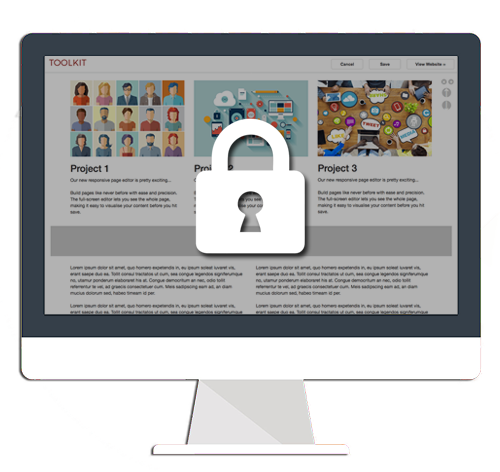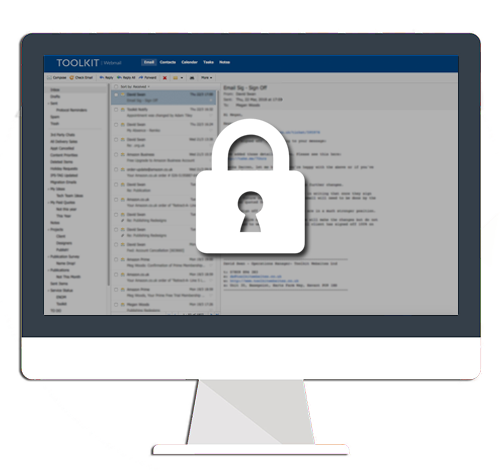About Our Systems and Protocols
The Toolkit
The Toolkit
is an encrypted, password protected Content Management System that only you and any other users on your account have access to. This is where the form submissions through your website are safely stored.
(Providing you're using Toolkit Forms and not 3rd Party Forms).
Login Details for The Toolkit are only sent to Authorised Users on accounts.
Any changes to your Account, Toolkit or website in general, are only actioned when the request is emailed to us or directly actioned from an Authorised Users email request.


Toolkit Email Service
We do not store any mailbox passwords.
The resetting of passwords is handled completely via automated texts, so our team don't even see your password when you reset it.
Please do not send us your mailbox passwords. We can access your mailboxes in emergency circumstances through our Webmaster system, however doing so automatically alerts our customers and management team via email. No passwords are stored or seen during this process.
Toolkit Webmail uses SSL encryption to send emails and we recommend all our clients use SSL connections when configuring email addresses on phones, tablets or Mail Clients such as Outlook, Thunderbird, Live Mail etc.
